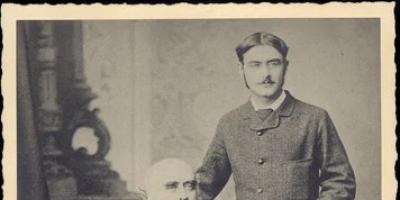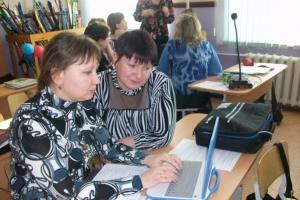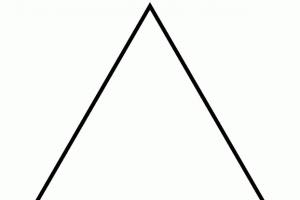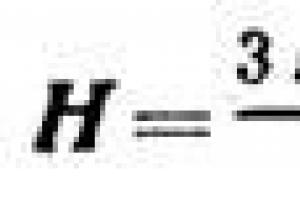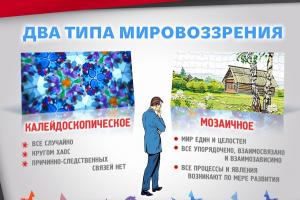В двух предыдущих статьях мы изучили правила употребления местоимений-прилагательных. Сейчас вы можете выполнить упражнения, и в конце сверится с ответами, чтобы лучше понять, как вы усвоили пройденный материал.
1) They’re going away for a few / a little days.
2) I think you’ve put too many / too much sugar in your tea.
3) How many / much time have we got left?
4) Do you know much / many foreign people? — No, I don’t. I know very few / a few.
5) He’s got little / a little time. He can play football.
6) We’ve got little / a little coffee. It’s not enough for all of us.
7) There are a few / few sweets in the box. It’s almost empty.
8) I’ve got few / a few apples. I can make some juice.
1) There isn’t many milk in the fridge.
2) How much tomatoes do you need?
3) There’re a few people at the theatre. It’s almost empty.
4) There is many juice in the cartoon.
5) This dress doesn’t cost many money.
6) How much tigers are there in the zoo?
7) I would like a little biscuits to drink with tea.
8) We’ve got few ham. We can’t make any hamburgers.
1) How … sugar would you like?
2) How … peppers have we got?
3) I’ve got … new business ideas.
4) There aren’t … benches in the yard.
5) I saw … interesting films last week.
6) How … is this dress?
1) How … cheese should I buy?
A much B many C lots of
2) Could I have … more ice in my drink?
A a few B a little C many
3) Only … people know that he was a famous actor.
A much B a few C a little
4) I’ve got …. free time today. There’re a lot of businesses to do.
A little B much C few
5) She doesn’t eat … chocolate because she’s on a diet.
A many B a lot of C much
6) How … sweets are there in the bowl?
A lots of B few C many
1) What would you like in your tea? – Just …. sugar, please.
2) I’ve only got … money, so I can’t afford to buy this jacket.
3) There are still …tickets left for the concert next Monday. – Great. I’ll go and buy one.
4) There’s …. wine in the bottle. Would you like some?
5) Are there … chemists near here? Yes, …
6) I eat … fish. I prefer meat.
1) Have you got any envelopes? – Yes, …
2) How much money do you need for your holiday? – Not …
3) Would you like some coffee? – Just …
4) Were there any people at the meeting? – Yes, …
5) Is there any ham in the fridge? – Not …
6) How many cucumbers do we need for the salad? – Not …
1. Underline the correct word. Подчеркни правильное слово.
1) They’re going away for a few / a little days.
2) I think you’ve put too many / too much sugar in your tea.
3) How many / much time have we got left?
4) Do you know much / many foreign people? — No, I don’t. I know very few / a few.
5) He’s got little / a little time. He can play football.
6) We’ve got little / a little coffee. It’s not enough for all of us.
7) There are a few / few sweets in the box. It’s almost empty.
8) I’ve got few / a few apples. I can make some juice.
2. Correct the mistakes. Исправь ошибки.
1) There isn’t much milk in the fridge.
2) How many tomatoes do you need?
3) There’re few people at the theatre. It’s almost empty.
4) There is a lot of juice in the cartoon.
5) This dress doesn’t cost much money.
6) How many tigers are there in the zoo?
7) I would like a few biscuits to drink with tea.
8) We’ve got little ham. We can’t make any hamburgers.
3. Fill in many, much, a lot of. Вставь many, much, a lot of.
1) How much sugar would you like?
2) How many peppers have we got?
3) I’ve got a lot of new business ideas.
4) There aren’t many benches in the yard.
5) I saw a lot of interesting films last week.
6) How much is this dress?
4. Choose the correct answer. Выбери правильный ответ.
1) How much cheese should I buy?
2) Could I have a little more ice in my drink?
3) Only a few people know that he was a famous actor.
4) I’ve got little free time today. There’re a lot of businesses to do.
5) She doesn’t eat much chocolate because she’s on a diet.
6) How many sweets are there in the bowl?
5. Fill in a little, a few, little, few. Вставь a little, a few, little, few.
1) What would you like in your tea? – Just a little sugar, please.
2) I’ve only got little money, so I can’t afford to buy this jacket.
3) There are still a few tickets left for the concert next Monday. – Great. I’ll go and buy one.
4) There’s a little wine in the bottle. Would you like some?
5) Are there any chemists near here? Yes, a few.
6) I eat few fish. I prefer meat.
6. Answer the questions using a lot, many, much, a little, a few . Ответьте на вопросы, используя a lot, many, much, a little, a few.
1) Have you got any envelopes? – Yes, a lot.
2) How much money do you need for your holiday? – Not much.
3) Would you like some coffee? – Just a little.
4) Were there any people at the meeting? – Yes, a few.
5) Is there any ham in the fridge? – Not much.
6) How many cucumbers do we need for the salad? – Not many.
few и a few .
Показать ответы с переводом
- I saw your cat a few minutes ago. – Я видел вашу кошку несколько минут назад.
- They have very few good ideas for the show. – У них очень мало хороший идей для шоу.
- Unfortunately, there were few guests at the event. We hoped to see more people. – К сожалению, на мероприятии было мало гостей. Мы надеялись увидеть больше людей.
- Only a few guests (five or six) out of almost a hundred people were officially invited. – Только несколько гостей (пять или шесть) из почти сотни людей были официально приглашены.
- I have tried to read that book a few times but always ended up sleeping. – Я несколько раз пытался прочитать эту книгу, но всегда в итоге засыпал.
Упражнение 2. Little или A Little?
В этом упражнении нужно расставить по местам little и a little .
Показать ответы с переводом
- Hurry up, we have little time. – Торопись, у нас мало времени.
- Just give us a little time, please. A few minutes, okay? – Просто дайте нам немного времени, пожалуйста. Несколько минут, хорошо?
- People who have little patience can’t be good teachers. – Люди, у которых мало терпения, не могут быть хорошими учителями.
- You should drink a little hot coffee, it will help. – Тебе нужно выпить немного горячего кофе, это поможет.
- Can you wait a little longer? – Не могли бы вы подождать чуточку дольше?
Упражнение 3. Few, Little, A Few, A Little
Это более сложное задание. Заполните пропуски, выбрав между вариантами: few, little, a few, a little .
Показать ответы с переводом
- Only a few people in our town speak French. – В нашем городе только несколько человек говорят по-французски.
- We have little information about that person. – У нас мало информации об этом человеке.
- Very few poets publish their work in paper nowadays. – В наше время очень немногие поэты публикуют свои произведения в бумажном виде.
- I have texted you a few times. – Я написал тебе несколько раз.
- Are you thirsty? I have a little water. – Вы хотите пить? У меня есть немного воды.
- We moved to the town this summer and my sister has few friends here, she feels lonely. – Мы переехали в этот город этим летом, и у моей сестры мало друзей, ей одиноко.
- The car goes fast on little fuel. – Машина едет быстро, расходуя мало топлива.
Упражнение 4. Few, Little, A Few, A Little
В этом упражнении тоже нужно заполнит пропуски, выбрав между вариантами: few, little, a few, a little.
Приветствую вас, дорогие мои!
Бытует такое мнение, что русский язык — самый богатый язык с безмерным количеством красивых слов!.. Но вот как же с ним согласиться, когда в русском есть только одно слово, выражающее большое количество — «много» , а в английском — таких слова аж целых три! (на самом деле их больше — это лишь основные...).
Конечно, дебаты по поводу красоты языка разводить я тут не буду — и так ясно, что каждый язык великолепен по-своему! А вот "Правило much many " и еще нескольких других слов, которыми мы выражаем quantity, я вам сегодня разложу так, чтобы вы и не думали больше путаться и ошибаться! Вы готовы? Я уже...
Начнем пожалуй с таблицы, которая вам наглядно покажет разницу. А закончим упражнениями — без них ваши свежие знания улетят в водопроводную трубу — примерно так же, как улетает случайно упавшая туда сережка)).
Я думаю, по таблице все понятно. Теперь объясню словесно и более подробно.
- Much/a little/little (много/немного/мало)
Слова Much/a little/little используются только с существительными, которые нельзя сосчитать, то есть с неисчисляемыми существительными. Much означает большое количество чего-либо — much sugar (много сахара), much water (много воды), much money (много денег). Little – наоборот – очень мало чего-либо – little sugar (очень мало сахара), little water (мало воды), little money (мало денег). A little означает «немного» , это нечто среднее между much и little – a little sugar (немного сахара), a little water (немного воды), a little money (немного денег).
- Many/a few/few (много/немного/мало)
Слова Many/a few/few используются только с существительными, которые можно сосчитать, то есть с исчисляемыми существительными. Many означает большое количество чего-либо — many books (много книг), many friends (много друзей), many thoughts (много мыслей). Few – наоборот – очень мало чего-либо – few books (очень мало книг), few friends (мало друзей), few thoughts (мало мыслей). A few означает «несколько» , это нечто среднее между many и few – a few books (несколько книг), a few friends (несколько друзей), a few thoughts (несколько мыслей).
- A lot of (много)
A lot of можно использовать как с исчисляемыми, так и с неисчисляемыми существительными, что очень удобно. A lot of часто заменяет much и many в утвердительных предложениях , тогда как в отрицаниях и вопросах уместнее использовать much и many.
Do you have much time?
— No, I don’t have much time. or – Yes, I have a lot of time.
Кстати, есть несколько «тонких мест», на которых учащиеся очень часто делают ошибки. Читаем и запоминаем!
!Many people! (не much)
Many clothes! (не much )
Much money! (не many)
Many fruits ! или !Much fruit!
А теперь, как и было мной обещано, задания с ответами в конце
Упражнение 1. Вставьте much или many вместо точек
- Have you found … information about this company?
- They spent … money in a shop yesterday.
- There are so … places in the world that I’d like to visit.
- … people nowadays use bicycles instead of cars to go to work.
- “You’ve put too … salt in the soup, I can’t eat it!”
- “Don’t buy … food in the supermarket, we are going out tonight”.
Упражнение 2. Переведите предложения на английский язык, используя much, many, a little, a few, little, few, a lot of
- У меня мало друзей в этой части города.
- Учительница сказала так много слов, но я ничего не понял.
- Он попросил официанта принести немного воды.
- Осенью многие птицы улетают на юг.
- Ей не нравится, когда в чае слишком много сахара.
- “В шкафу совсем нет места! У тебя так много одежды!”
Надеюсь, ошибок у вас было совсем few!
Ну а если остались вопросы, не стесняйтесь задавать — я на них обязательно отвечу!
Ответы
Упражнение 1.
Упражнение 2.
- I have few friends in this part of the city.
- A teacher said so many words but I understood nothing.
- He asked a waiter to bring a little water.
- In autumn many birds fly to the south.
- She doesn’t like it when there is too much sugar in tea.
- “There is no place in a wardrobe! You’ve got so many clothes!”
Привет, Друзья! Как не запутаться, используя much и many? Просто обратите внимание на правила употребления, ведь англичане неслучайно придумали два слова с одинаковым значением.
Они не являются взаимозаменяемыми: в одних случаях вам понадобится только much, а в других – только many. Здесь всё зависит от самого слова, к которому будет относиться much или many. Давайте разбираться, что к чему!
Разница между many и much
Местоимение many употребляется в тех случаях, когда оно относится к предметам (одушевленным или неодушевленным), которые можно посчитать. Слова, обозначающие такие предметы, называются исчисляемыми существительными.
- many children – много детей
- many people — много людей
- many tigers — много тигров
используем many (так как их можно посчитать)
Местоимение Much употребляется только с существительными, которые нельзя сосчитать, то есть с неисчисляемыми существительными.
- much sugar (много сахара)
- much water (много воды)
- much money (много денег)
используем much (так как их нельзя сосчитать. Much означает большое количество чего-либо.)
Смотрим таблицу, которая вам наглядно покажет разницу употребления Much, Many
| Much
/Little
(много/мало) |
Many
/Few
(много/мало) |
A lot of
/ Plenty of
(много) |
|---|---|---|
| Неисчисляемые существительные | Исчисляемые существительные | Исчисляемые и несчисляемые существительные |
| How much money have you got
? – Как много у тебя денег?
There is little ink left in my pen . – В моей ручке осталось немного чернил. |
I have many friends
. – У меня много друзей.
He has got few best friends . – У него несколько (немного) лучших друзей. |
There is a lot of sugar there
. – Там много сахара.
There are plenty of plants in the garden . – В саду много растений. |
Many
употребляется там, где предметы можно посчитать поштучно.
Если же они счету не поддаются, смело вставляйте в предложение слово much
.

Вопросительные предложения
- How much sugar do you take in your coffee?
Сколько сахара ты кладешь в кофе? - How much money do you want for this?
Сколько (денег) ты за это хочешь? - Do you have much work to do?
У тебя много работы? - How many students are there in each class?
Сколько учеников в каждом классе? - How many people are you expecting?
Сколько человек ты ожидаешь?
Отрицательные предложения
- He doesn’t earn much money (существительное money — неисчисляемое).
Он зарабатывает мало (= немного) денег. - Not many people have heard of her (существительное people — исчисляемое).
Немногие о ней слышали. - Barbara doesn’t have many friends.
У Барбары мало (= не много) друзей.
MUCH or MANY or A LOT OF?
Упражнения на тему much / many:
Упражнениe 1. Используйте much или many для выражения Сколько…?.
- How … days?
- How … sugar?
- How … cigarettes?
- How … work?
- How … petrol?
- How … children?
- How … theatres?
- How … juice?
Упражнение 2. Переведите предложения на английский язык, используя much, many, a little, a few, little, few, a lot of
- У меня мало друзей в этой части города.
- Учительница сказала так много слов, но я ничего не понял.
- Он попросил официанта принести немного воды.
- Осенью многие птицы улетают на юг.
- Ей не нравится, когда в чае слишком много сахара.
- “В шкафу совсем нет места! У тебя так много одежды!”
Упражнение 3. Используйте much или many.
Do you drink ________coffee? I like reading. I read _________ books. We have _______ lessons of English this year. I can’t remember _______ from this text. Do you learn _______ new English words every day? We haven’t got ________ bread. I can’t spend ________ money on toys.
Ответы
Упражнение 1.
- How many days? (Сколько дней?)
- How much sugar? (Сколько сахара?)
- How many cigarettes? (Сколько сигарет?)
- How much work? (Сколько работы?)
- How much petrol? (Сколько бензина?)
- How many children? (Сколько детей?)
- How many theatres? (Сколько театров?)
- How much juice? (Сколько сока?)
Упражнение 2.
- I have few friends in this part of the city.
- A teacher said so many words but I understood nothing.
- He asked a waiter to bring a little water.
- In autumn many birds fly to the south.
- She doesn’t like it when there is too much sugar in tea.
- “There is no place in a wardrobe! You’ve got so many clothes!”
Упражнение 3.
Do you drink much coffee? I like reading. I read many books. We have many lessons of English this year. I can’t remember much from this text. Do you learn many new English words every day? We haven’t got much bread. I can’t spend much money on toys.
Друзья ставим лайк, мы старались!
Употребление much, many, a lot of, (a) little, (a) few
1. Поставьте «+» при правильном использовании «much» или «many», поставьте «-» - при неверном.
We don’t have many food in the house.
I can’t give you many information about the company.
I need much apples for the pie.
How many people are there in your office?
There is much wine in the
She doesn’t have many luggage.
My son earns much money now.
They saw many snow in the mountains.
I have tried diving many times in my life.
John will have much exams next year.
2. Используйте «much» или «many» для выражения «Сколько…?».
How … days?
How … sugar?
How … cigarettes?
How … work?
How … petrol?
How … children?
How … theatres?
How … juice?
3. Поставьте «a lot of» (много) в необходимом месте в предложении.
We met interesting people at the party.
I ate fish for lunch.
She bought nice shoes for the next summer.
They have problems in their business.
There is water in the bath.
4. Перепишите вопросы, заменив some на «a little» или «a few».
Would you like some cheese?
Would you like some mineral water?
Would you like some strawberries?
Can I offer you some black coffee?
Can I offer you some bread?
Shall I bring you some biscuits?
Shall I bring you some plums?
Would you like some meat?
5. Поставьте подходящее слово из скобок.
There is too … (much/many/a few) salt in the soup. (В супе слишком много соли.)
There are … (much/a little/a few) sky-scrapers in our city. (В нашем городе есть несколько небоскребов.)
I’ve got … (much/a few/a little) albums of this singer. (У меня есть несколько альбомов этого исполнителя.)
My job allows me to travel … (much/many/a few). (Моя работа позволяет мне много путешествовать.)
We’ve got … (little/many/few) free time. (У нас мало свободного времени.)
I have never seen so … (much/little/many) stars in the sky. (Я никогда не видел так много звезд в небе.)
Anna spent … (much/a few/a little) days in Rome. (Анна провела несколько дней в Риме.)
I’d like just … (much/a few/a little) tea. (Я бы хотел лишь немного чая.)
There was very … (little/few/many) rain last autumn. (Прошлой осенью было очень мало дождей.)
Very … (few/little/much) Russian tourists are staying at our hotel. (Очень мало русских туристов проживает в нашем отеле.)
6. Вставьте much или many
1. I don"t eat mangoes. 2. Не eats fish. 3. She ate so dessert that she is in bed today with a stomachache. 4. That man drank so wine, and he smoked so cigarettes that he has a terrible headache today. 5. Mary must not eat too salt because she has problems with her blood pressure. 6. My mother says I eat too French fries and drink too beer. She wants her son to be healthy. 7. There is not too space in my flat. 8. There are new pictures in this room. 9. There are teachers at our school, and of them are women. 10. of these plays are quite new. 11. Thanks awfully for the books you sent me yesterday. - Don"t mention it, it wasn"t bother. 12. of her advice was useful. 13. He had pairs of socks. 14. Please don"t put pepper on the meat. 15. There were plates on the table. 16. I never eat bread with soup. 17. Why did you eat so ice cream? 18. She wrote us letters from the country. 19. of these students don"t like to look up words in the dictionary. 20. in this work was too difficult for me. 21. of their answers were excellent. 22. of their conversation was about the institute.
7. Переведите на английский язык следующие пары слов
Мало домов, мало чая, мало чашек, мало яблок, мало окон, мало бумаги, мало кофе, мало статей, мало радости, мало супа, мало деревьев, мало травы, мало детей, мало игрушек, мало света, мало парт, мало колбасы, мало сока, мало книг, мало цветов, мало соли, мало друзей, мало дворцов.
8. Вставьте little или few
l. Не has got friends. 2. I drink coffee. I don"t like it. 3. We must hurry. We"ve got very time. 4. There are very scholarships for students in this university. 5. The Smiths have money. They aren"t rich. 6. The theatre was almost empty. There were very people there. 7. There was lemonade in the bottle. There were peaches in the basket. 8. I have time, so I can"t go with you. 9. He has English books. 10. There is ink in my pen. Have you got any ink? 11. There are bears in the zoo. 12. Tom Canty was the son of poor parents and had very clothes. 13. There is too soup in my plate. Give me some more, please. 14. The children returned from the wood very sad because they had found very mushrooms. 15. There was too light in the room, and I could not read. 16. There are very people who don"t know that the Earth is round.
9. Вставьте much, many, little или few
1. Robert wrote so letters that he"s never going to write a letter again. 2. She ate so ice cream that she"s going to have a sore throat. 3. There is mayonnaise in Vera"s kitchen. She has to go to the supermarket and buy some. 4. There are cookies in the box. I should have bought them last Monday. 5. Does your sister read ? - Yes, she does. And your brother? - Oh, he doesn"t. He has so books, but he reads very . 6. Have you work to do today? - No, not very . 7. Walk quicker, please. We have very time. 8. I am sorry to say, I have read very books by Walter Scott. 9. My broter is a young teacher. Every day he spends time preparing for his lessons. 10. I know very about the writer. It is the first book I am reading. 11. The pupils of our class ask questions at the lesson. They want to know everything. 12. You do not make mistakes in your spelling. Do you work hard at it? - Oh, yes, I do, I work very .
10. Переведите на английский язык следующие пары слов.
Немного денег, мало денег, несколько стульев, мало стульев, несколько песен, мало песен, немного веселья, мало веселья, мало мальчиков, немного воды, несколько человек, мало воды, мало воздуха, мало столов, несколько минут, несколько кошек, мало травы, немного удачи, несколько дней, мало работы, немного соли, несколько ложек, мало света, мало окон, несколько машин, немного сахару, мало яиц, мало сыра.
11. Вставьте a little, a few
This is my mother"s favorite recipe for fruitcake, and everybody says it"s out of this world!
1. Put 3 cups of flour into a mixing bowl.
2. Add sugar.
3. Slice apples.
4. Cut up oranges.
5. Pour in honey.
6. Add baking soda.
7. Chop up nuts.
8. Add salt.
9. Mix in raisins.
10. Bake for 45 minutes.
Enjoy, dear!
12. Вставьте little, a little, few или a few
1. There is salad left in this bowl. 2. Would you like salad? - Yes, thank you. My doctor says it"s good for my health. 3. I have money, so we can go to the cinema. 4. I have money, so we cannot go to the cinema. 5. This girl works very , that"s why she knows nothing. 6. Mother gave us apples, and we were glad. 7. He did not like it at the camp: he had very friends there. 8. This lemon drink is sour; if you put sugar in it, it will be sweeter. 9. This lemon drink is sour; if you put lumps of sugar in it, it will be sweeter. 10. The hall was almost empty: there were very people in it. 11. I can"t buy this expensive hat today: I have too money. 12. She left and returned in minutes. 13. I think you can spare me time now. 14. I am sorry I have seen plays by this author.


